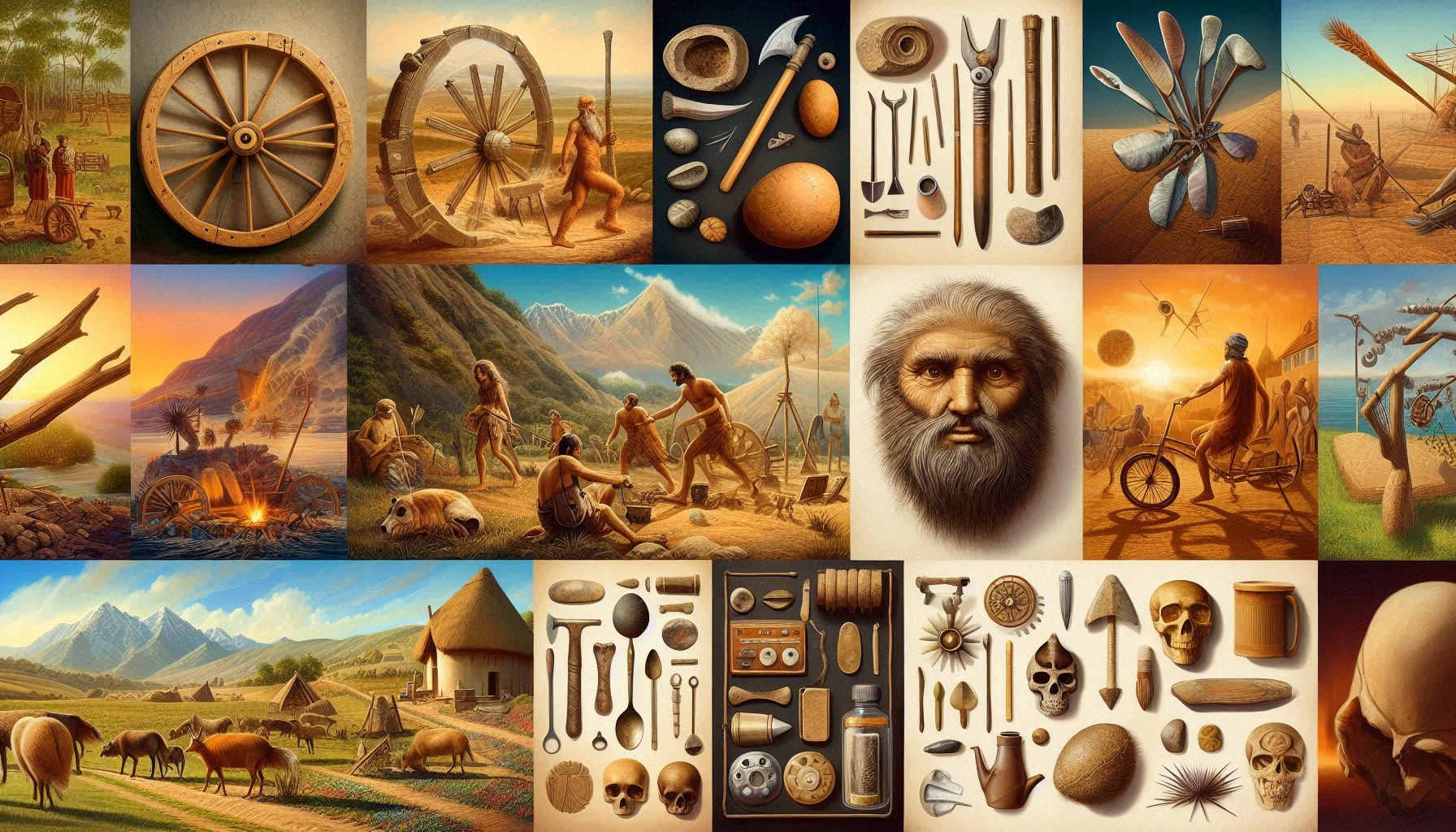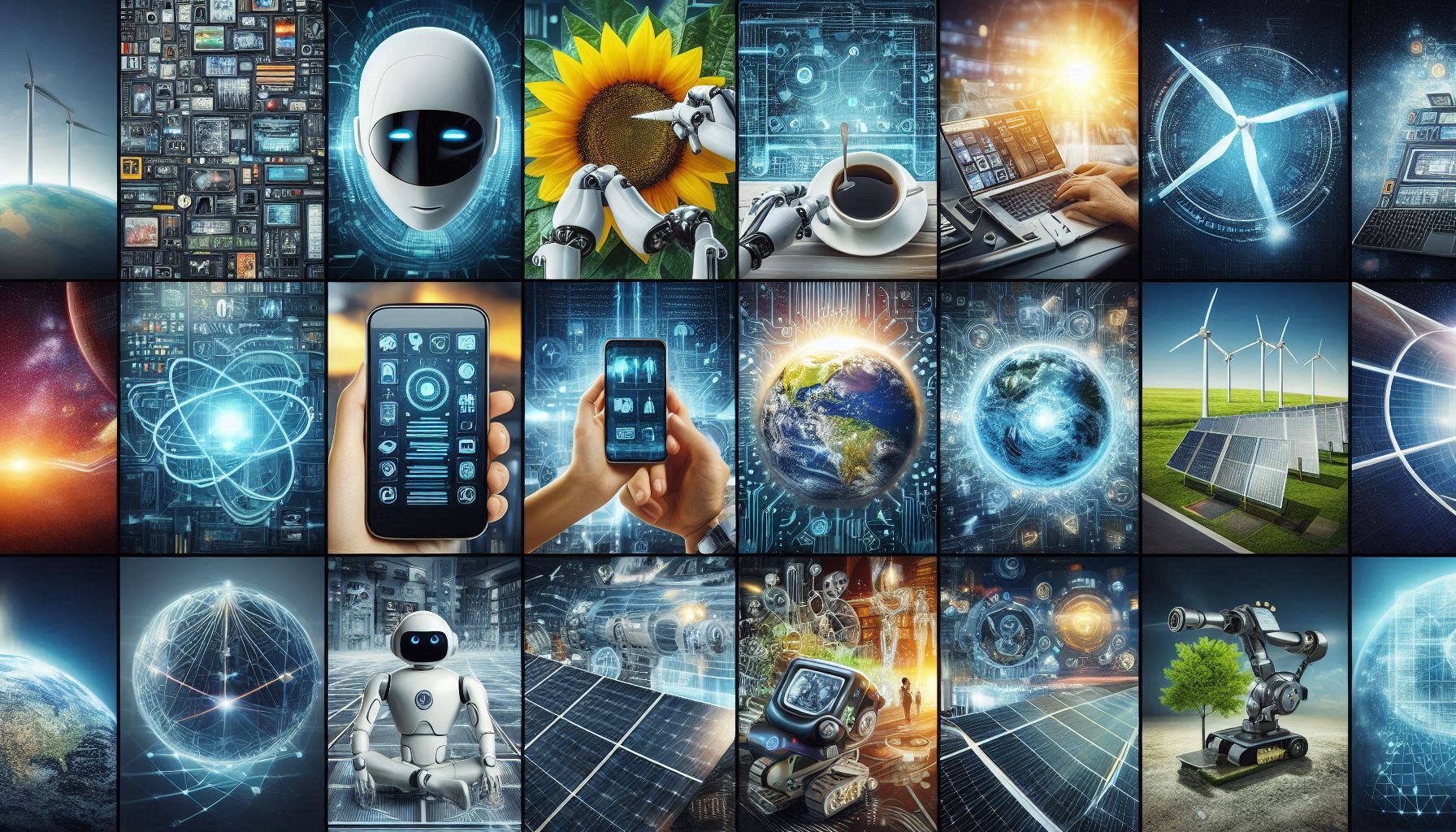
Technology: Shaping Our Past, Defining Our Present, Engineering Our Future
7/18/2024
Scroll to read
Technology: Shaping Our Past, Defining Our Present, Engineering Our Future
From the discovery of fire to the invention of the smartphone, technology has been the driving force behind human progress. It has shaped our past, defines our present, and will undoubtedly engineer our future. But what exactly is technology? How has it evolved over time? And what impact is it having on our world today?
At its core, technology is the application of knowledge to solve practical problems and extend human capabilities. This can take many forms, from simple tools like the wheel and the hammer to complex systems like computers and the internet. Technology encompasses both the tangible tools we use and the intangible knowledge that drives their creation.
A Journey Through Time: The Evolution of Technology
The story of technology is as old as humanity itself. Early humans were toolmakers, using stones, bones, and wood to create weapons for hunting and tools for gathering. The invention of agriculture around 10,000 BC marked a turning point, allowing humans to settle in one place and develop new technologies like irrigation and pottery.
 The wheel, invented around 3500 BC, revolutionized transportation and trade, while the printing press, invented in 1440 AD, democratized knowledge and paved the way for the Renaissance. The Industrial Revolution, beginning in the late 18th century, saw the mechanization of production and the rise of factories, ushering in an era of unprecedented technological advancement.
The wheel, invented around 3500 BC, revolutionized transportation and trade, while the printing press, invented in 1440 AD, democratized knowledge and paved the way for the Renaissance. The Industrial Revolution, beginning in the late 18th century, saw the mechanization of production and the rise of factories, ushering in an era of unprecedented technological advancement.
The Digital Age: Where We Stand Today
The 20th and 21st centuries have witnessed an explosion of technological innovation, particularly in the fields of computing, communication, and biotechnology. The invention of the transistor in 1947 paved the way for the microchip and the personal computer, revolutionizing how we live, work, and interact with the world.
The internet, which emerged in the 1990s, has connected billions of people globally, creating unprecedented opportunities for communication, collaboration, and access to information. Today, technologies like artificial intelligence (AI), machine learning, and blockchain are poised to transform industries from healthcare to finance, raising both exciting possibilities and ethical considerations.
 The Impact of Technology: A Double-Edged Sword
The Impact of Technology: A Double-Edged Sword
Technology has undoubtedly brought about countless benefits. It has increased life expectancy, improved communication, and connected us in ways unimaginable just a few decades ago. However, it also presents challenges. Automation threatens jobs, social media can fuel misinformation, and the ethical implications of AI are still being debated.
Navigating the Future: Embracing Technology Responsibly
As technology continues to advance at an exponential pace, it is crucial that we approach it with both excitement and caution. We must harness its power to address global challenges like climate change and poverty while mitigating its potential risks.
 Education and critical thinking are paramount. By fostering digital literacy and encouraging ethical considerations in technological development, we can ensure that technology remains a force for good, shaping a brighter future for all.
Education and critical thinking are paramount. By fostering digital literacy and encouraging ethical considerations in technological development, we can ensure that technology remains a force for good, shaping a brighter future for all.
.jpeg&w=3840&q=75)

